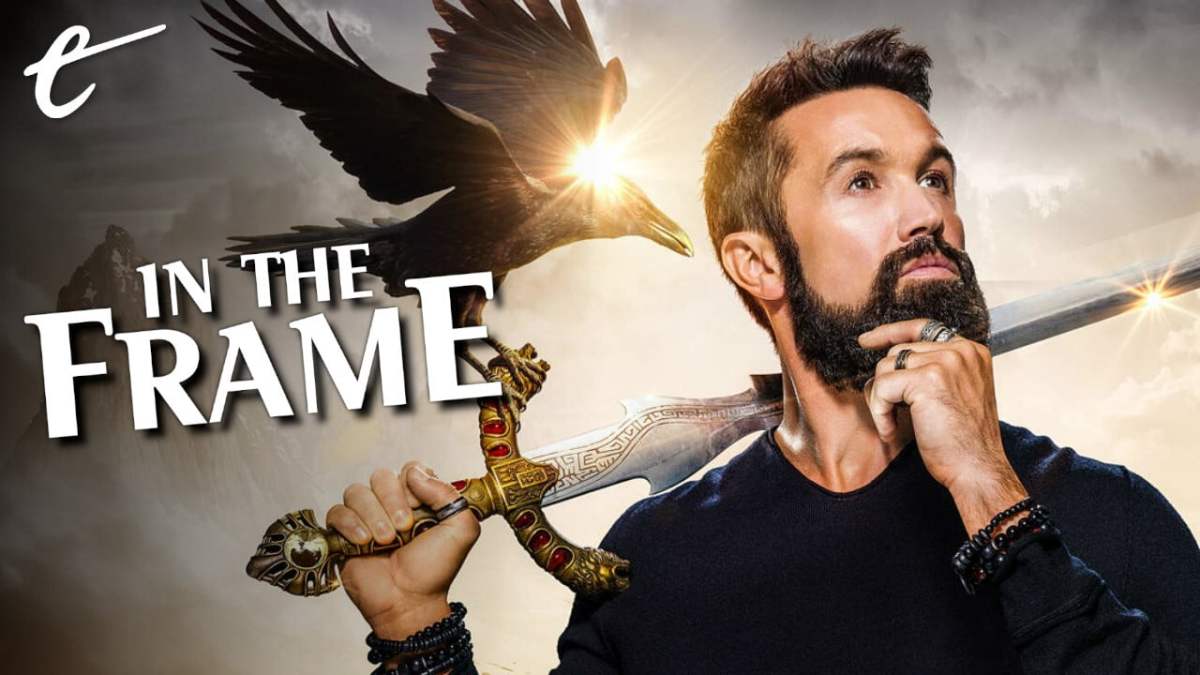The creative process is both an enticing curiosity and notoriously difficult to depict on screen. This is what makes Mythic Quest so fascinating.
On the surface, Mythic Quest is a formulaic workplace sitcom. Created by Rob McElhenney, Charlie Day, and Megan Ganz of It’s Always Sunny in Philadelphia, in association with Ubisoft, the show is set inside the offices of the eponymous company as the staff work on a massively multiplayer online game. It’s superficially similar to classics of the workplace sitcom genre, from M*A*S*H to Cheers to The Office to Parks and Recreation.
However, over its first two seasons, Mythic Quest has evolved into a nuanced and insightful study of the creative process. There are few films or television shows that so skillfully capture the art of creation. It is a show that understands the agony and ecstasy of trying to bring an idea to life. Crucially though, it understands that the process is more complicated and more challenging than it is often portrayed on screen. It is a remarkable balancing act.
There’s an old cliché that writers love writing about writers, whether out of some form of vanity or simply as the ultimate extension of “write what you know.” As a result, there’s a surprising amount of art that wrestles with the process of creating art. Even bombastic science fiction blockbusters like Inception can be read as extended metaphors for the art of filmmaking. This may be part of why the Academy Awards love movies about making movies.

However, the creative process is often portrayed in a trite manner. Bohemian Rhapsody depicts the writing of Queen’s A Night at the Opera as a montage of Freddie Mercury (Rami Malek) scribbling in a little notebook, staring into middle distance, and sighing to nobody in particular, “Oh, that’s really good.” In The Darkest Hour, Winston Churchill (Gary Oldman) is inspired to write his most famous refrain when the passengers on a broken-down train car repeat they will “never” surrender.
Part of the issue might simply be how art is often framed and discussed. There is a long history of fetishizing the auteur, of treating art as something that emerges from a single creative mind. Everything outside that mind is either fuel for the creative fire or an obstacle to overcome. It is often tied to other clichés, like an association with mental illness or as a tortured affliction. There’s a certain romantic appeal to this depiction of creativity, which presents it as something preternatural.
The most striking aspect of Mythic Quest is the care that it takes to avoid so many of these clichés and the emphasis that it places on creativity as a collaborative process. McElhenney stars as Ian (pronounced “Eye-an”) Grimm, the founder and creative director of the company who is obsessed with following his creative muse. This often places him at odds with his lead engineer Poppy Li (Charlotte Nicdao), who is charged with implementing his vision.
In the show’s pilot, Ian and Poppy find themselves in conflict over Poppy’s last-minute addition to the game. Poppy wanted to add a shovel as an expression of her own creative vision, “just a little MTX item (she) designed for (herself).” Naturally, Ian tries to hijack the shovel for himself, which inevitably causes tension among the creative team. Much of the show’s first season is given over to the push-and-pull between Ian and Poppy, with Poppy trying to express herself through her work.
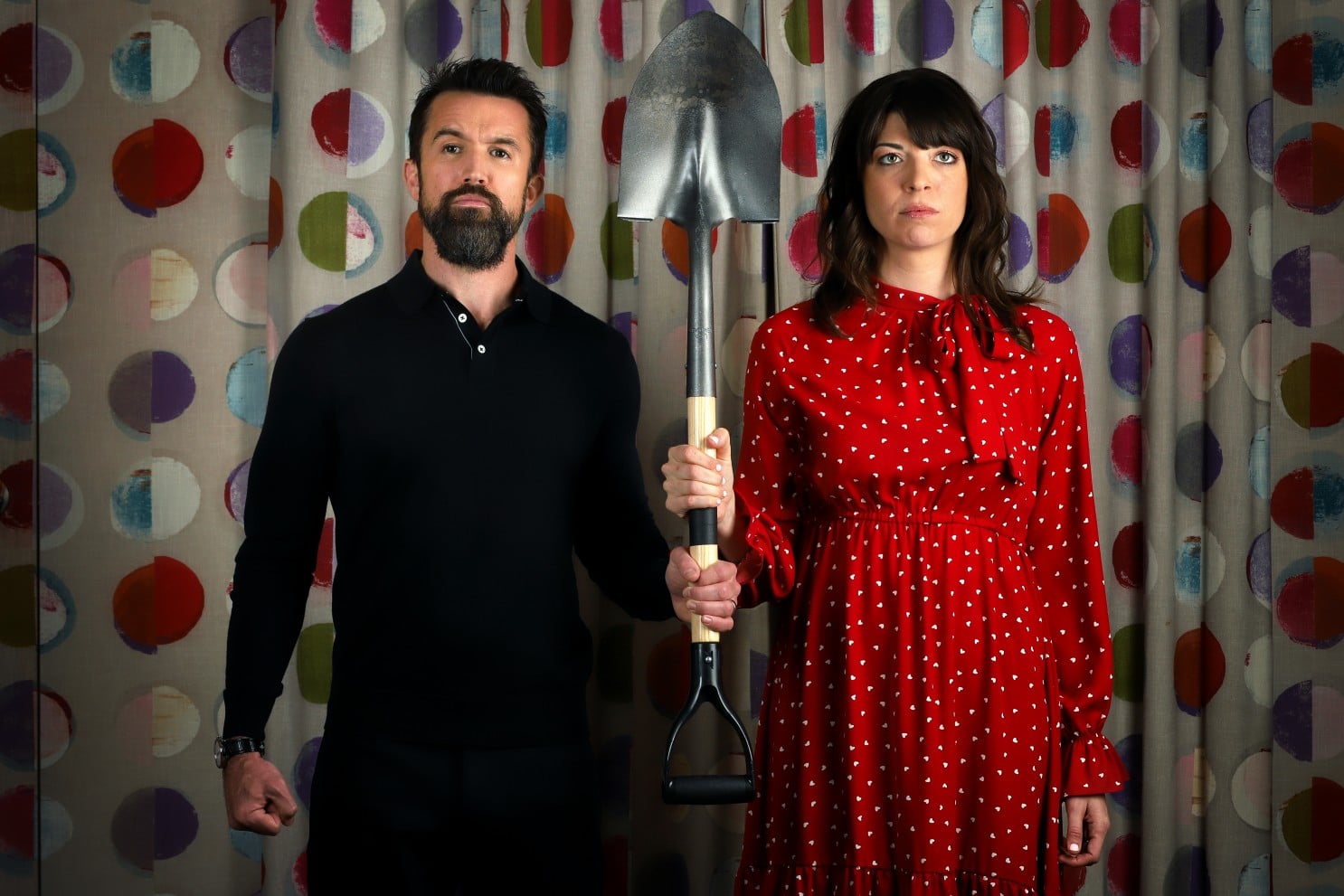
Over the first season, the characters in Mythic Quest come to appreciate each’s importance to the creative process. Washed up writer C.W. Longbottom (F. Murray Abraham) teaches tester Rachel (Ashly Burch) to appreciate cut scenes, while she teaches him to appreciate gameplay. Rachel’s fellow tester Dana (Imani Hakim) reinvents herself as a streamer. Even Brad (Danny Pudi), the cynical head of monetization, proves invaluable to the team.
Reflecting that narrative structure of the workplace sitcom, which often relies on throwing a large cast together in interesting combinations, Mythic Quest often focuses on the importance of collaboration. Ian and C.W. work together to crack the back story for the mysterious non-player character “the Masked Man.” Brad empowers the testers to create a mobile game. The coders even unionize under Michelle (Aparna Nancherla) and fight for overtime and possibly profit sharing.
This focus on creative collaboration comes to the fore in two standout episodes that branch beyond the show’s linear continuity and established cast. In “A Dark Quiet Death,” Mythic Quest jumps back in time to tell a seemingly disconnected story about a different game. Doc (Jake Johnson) and Bean (Cristin Milioti) are two creators who come up with a concept for a game titled Dark Quiet Death. The episode charts their struggle — and ultimately failure — to maintain control of the project.
Bean has a strong vision of what Dark Quiet Death should be, a bold statement. The player navigates a maze haunted by monsters, with only a flashlight to guide them. “You don’t kill the monsters; you just push them back,” she explains. “They’re a metaphor for fear and mortality.” However, as the game becomes more popular, executives begin to meddle. They turn the lighting up. They replace the flashlight with a shotgun. They allow the player to kill the monsters.
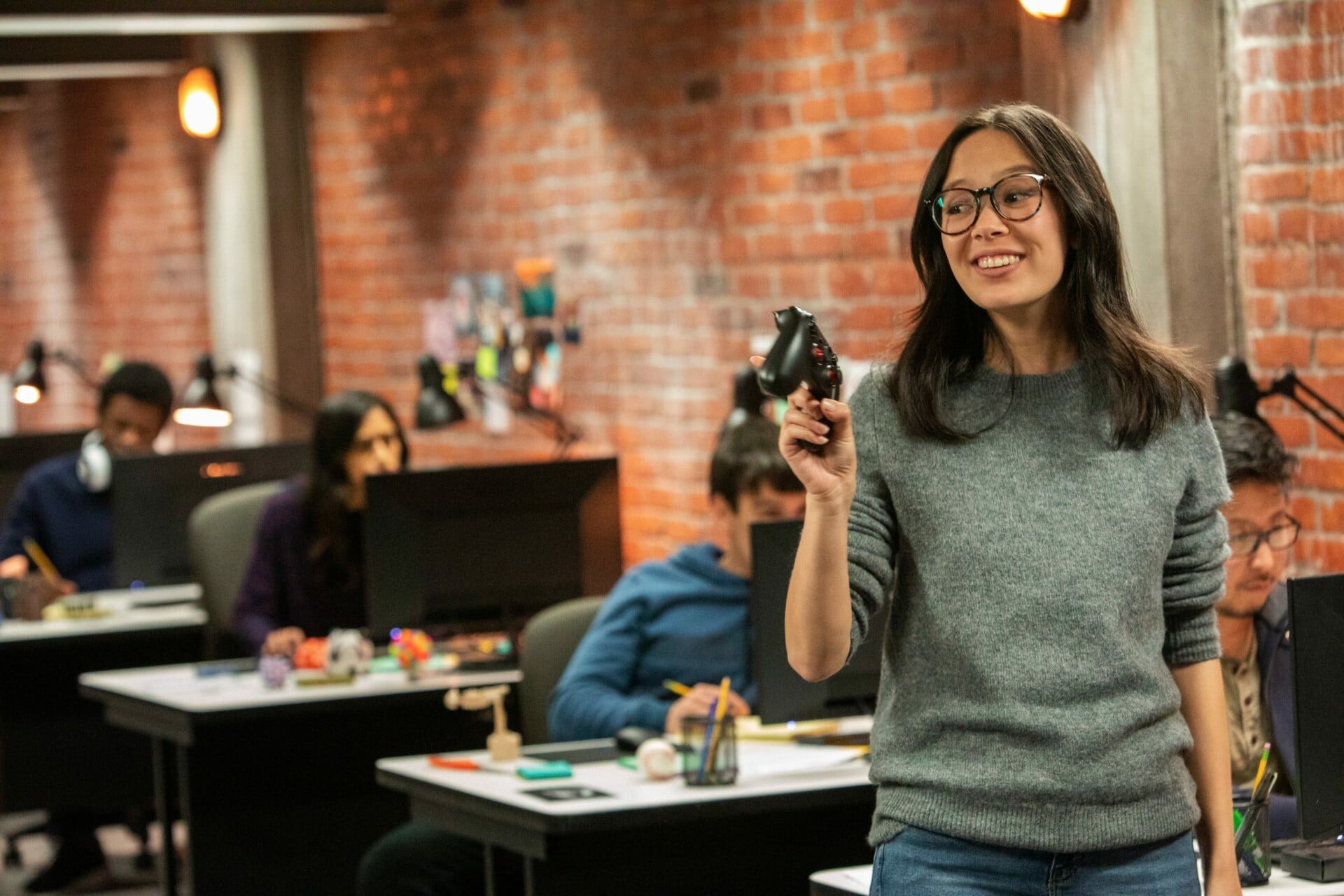
Doc and Bean’s creative vision dies by inches. Their relationship collapses. Bean fights but eventually leaves. Doc compromises but is eventually forced out. The detritus of Dark Quiet Death haunts Mythic Quest, surviving largely through the kid-friendly spin-off character Roscoe, a galling creative compromise that paid for Bean’s veneers. In the first season finale, the connection becomes clear. Ian inherited the “cursed” office space from Doc and Bean, his office built literally atop theirs.
In the first season finale, Ian shows an engraving to Poppy, the last reminder that Doc and Bean once occupied this space. “I found this when we first moved in,” Ian tells Poppy. “The people that were here before us signed it when they were building their game, but he fucked it all up ’cause he didn’t listen to his partner.” Creation is a collaborative process. At the end of the first season, Ian acknowledges as much by promoting Poppy to share his position as creative director.
The second season has a similarly off-format episode in “Backstory!,” which follows in-house writer C.W. Longbottom as a young man, now played by Josh Brener. Longbottom arrives from Iowa to work at Amazing Stories, convinced that he could be the next Isaac Asimov. He forms a relationship with two other younger writers, A.E. Goldsmith (Shelley Hennig) and Peter Cromwell (Michael Cassidy). The trio vow to work together to improve their writing and rise together.
However, C.W. is impatient and vain. He reacts strongly to well-intentioned criticism from his friends. He refuses to grow as a writer. At one point, he turns a flawed short story into a flawed novella without listening to their input. “Your novella has the same issues as your short story,” A.E. tells him. “There’s just more of it.” Without taking that feedback on board, C.W. is unable to grow or change, learn or improve. He cannot make the work better.
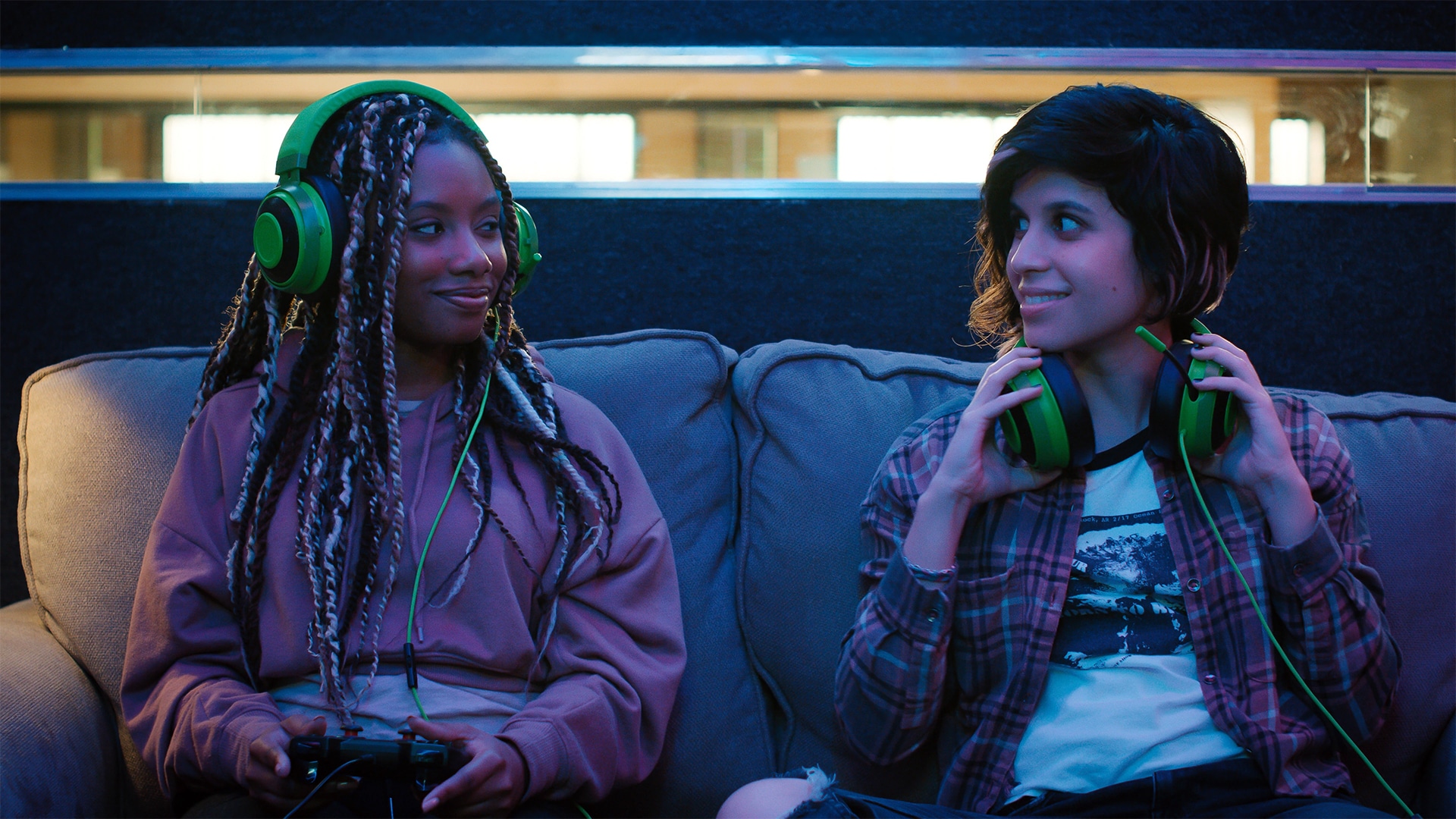
C.W. ultimately gets lucky. He submits the manuscript to Isaac Asimov (Chet Grissom), who effectively rewrites it from scratch. Bitter and cynical, C.W. publishes Asimov’s ghostwritten version under his own name and wins a Nebula. However, he is unable to replicate the success. After a disappointing sequel and failing to complete his trilogy, C.W. winds up a washed-up failure. Ian finds him working at a renaissance fair and offers him a second chance to prove himself.
Throughout Mythic Quest, it is stressed that creation is rarely a solo act. In the pilot, Ian acknowledges his frustration with his dependency on Poppy. “I’m just the guy who stands behind you and tells you what to paint,” he concedes. “But you’re the one that actually makes it happen. I wish I could do that, but I can’t. I need you. And that makes me so frustrated, but I do it anyway because it’s what makes the game better, and that’s all that matters.”
This fits with a shifting view of the creative process in popular culture. For understandable (and often tragic) reasons, many critics and artists have become more skeptical of the cliché of the solitary genius. This shift makes sense in Mythic Quest, given that the characters are working on a video game — a still novel form that by necessity requires the input of the player to create art. Even more than film or television, video games are a collaborative medium.
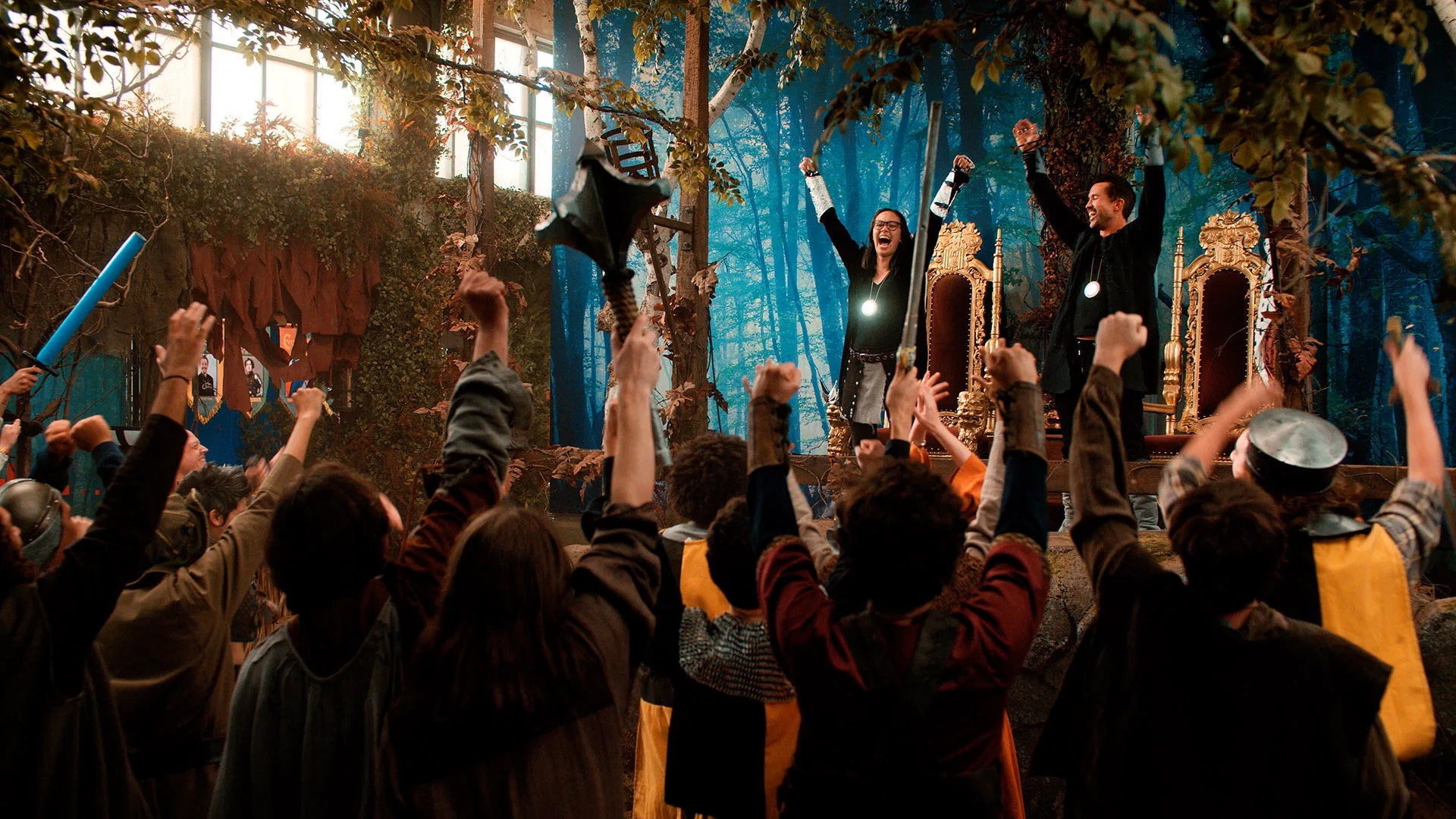
Poppy’s big proposals are designed to empower the players, to let them feel ownership of the game. In the first season, the shovel allows players to “literally change the landscape of the game.” In the second season, she proposes coding bricks and mortar to allow players to build their own spaces. Even Ian understands this. The show’s two pandemic episodes — “Quarantine” and “Everlight” — both find Ian bringing the staff together as true collaborators, whether constructing a Rube Goldberg machine over Zoom or participating in an inter-office live-action roleplay tournament.
Mythic Quest is itself a reminder of the collaborative nature of the creative process. McElhenney serves as creator, writer, director, and star. Cast members David Hornsby, Aparna Nancherla, and Ashly Burch all have writing credits. Craig Mazin, the writer of the beloved miniseries Chernobyl, has both a recurring role in the series and a writing credit on “Backstory!” In “Backstory!”, the Emmy-winning writer gets to write and deliver the line, “TV is shit. It’s for morons.”
Mythic Quest is a fun workplace sitcom with a great cast and a charming sense of humor. However, it’s also one of the most insightful and honest explorations of the creative process ever put on screen.

